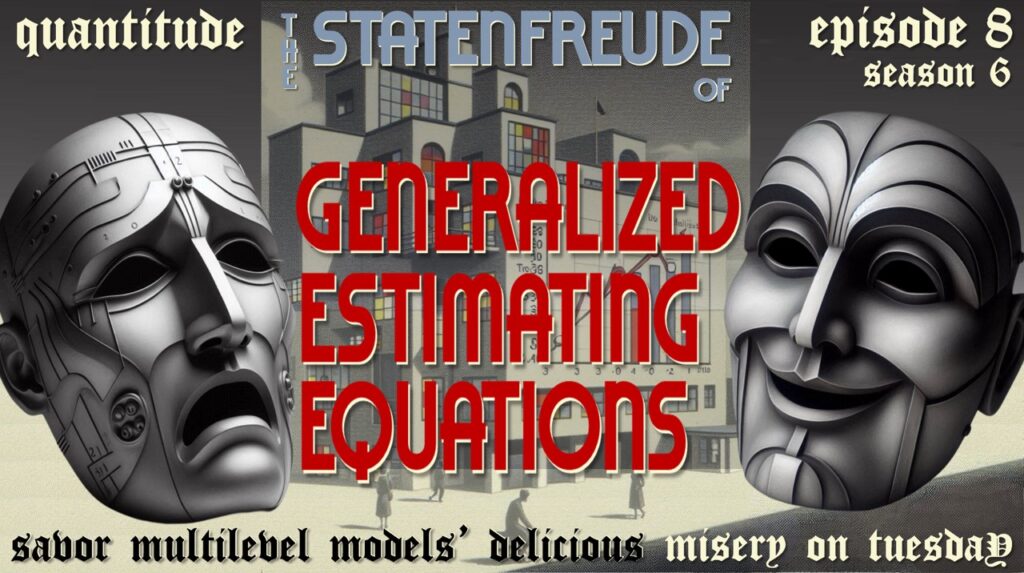In this week’s episode, Patrick and Greg discuss the benefits and limitations of generalized estimating equations as an approach to dealing with data that violate the assumption of independence. Along the way they also mention: goat rodeos, haunted houses, jump scares, liberos, Haikyu!!, Whoa Ace!, dadenfreude, Otto, cutting the baguette, this just in, American Idiot, bing bong bing bong, my dad drinks Pepsi, and fine print.
Related Episodes
- S5E05: Multilevel Models Unleashed
- S3E17: Logistic Regression: 2 Logit 2 Quit
- S2E29: Multilevel Models: The Often Unnecessary Green Monster with Dan McNeish
- S2E27: (re)Connecting With Discrete Data
Suggested Readings
Hardin, J. W., & Hilbe, J. M. (2002). Generalized estimating equations. Chapman and Hall/CRC.
Liang, K. Y., & Zeger, S. L. (1986). Longitudinal data analysis using generalized linear models. Biometrika, 73(1), 13-22.
McNeish, D. M. (2014). Modeling sparsely clustered data: Design-based, model-based, and single-level methods. Psychological methods, 19(4), 552.
McNeish, D. (2023). A practical guide to selecting and blending approaches for clustered data: Clustered errors, multilevel models, and fixed-effect models. Psychological Methods.
McNeish, D., & Stapleton, L. M. (2016). Modeling clustered data with very few clusters. Multivariate behavioral research, 51(4), 495-518.
McNeish, D., Stapleton, L. M., & Silverman, R. D. (2017). On the unnecessary ubiquity of hierarchical linear modeling. Psychological Methods, 22(1), 114.

